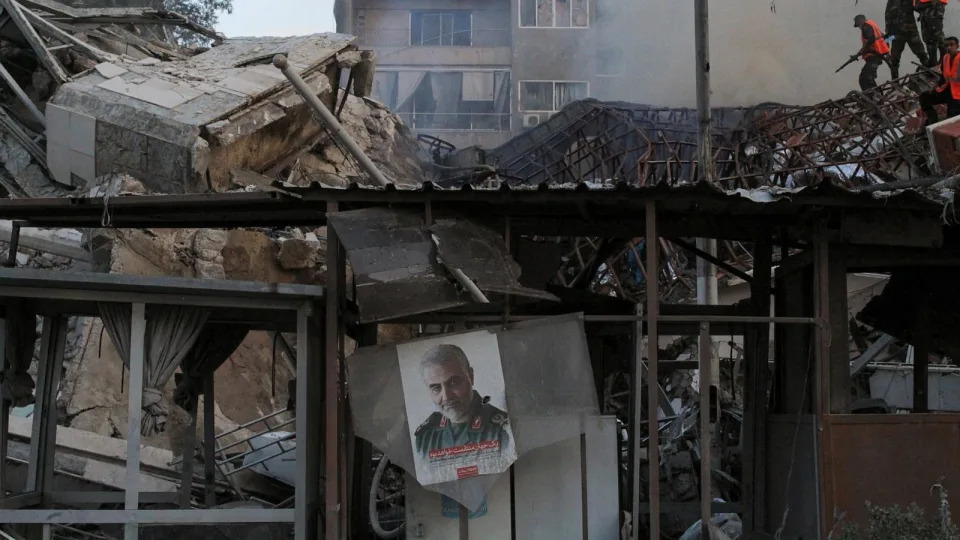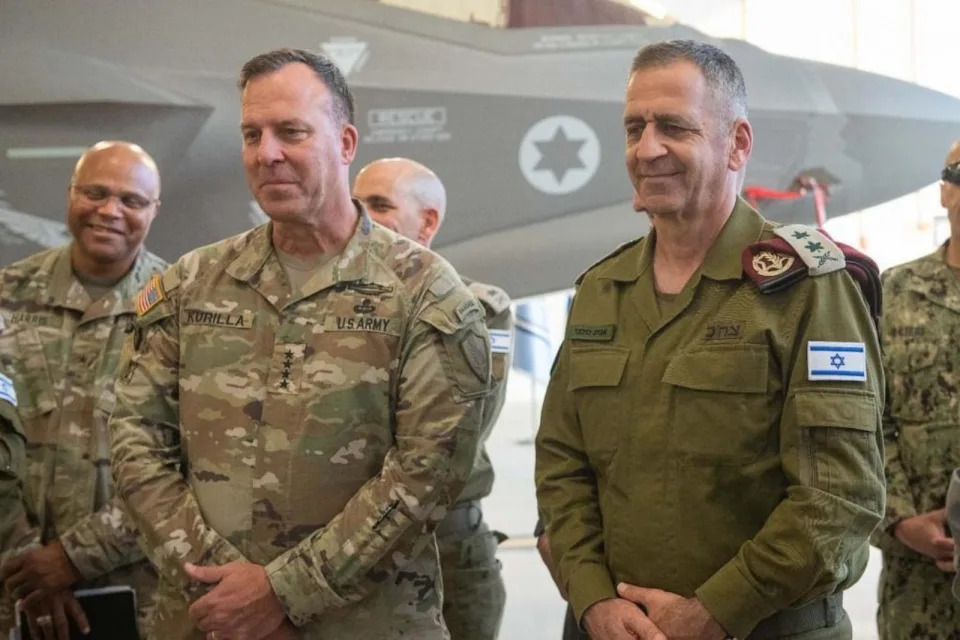Top Stories
Biden’s message to Iran about retaliatory strike on Israel: ‘Don’t’

President Joe Biden told reporters Friday afternoon he expects an Iranian strike on Israel to occur “sooner than later” amid urgent concerns that Iran was about to retaliate for the bombing of its consulate in Damascus, Syria, earlier this month.
Asked for his message to Iran in the tense moment, Biden was blunt, saying simply, “Don’t.”
“Would the U.S. respond?” ABC News Chief White House Correspondent Mary Bruce asked repeatedly as the president walked away after the end of an unrelated event. He paused, thought for a moment and then returned to the lectern.
“We are devoted to the defense of Israel. We will support Israel. We will help defend Israel and Iran will not succeed,” he said.

Biden’s comments come as other high-level U.S. officials worked urgently behind the scenes to pressure Iran to back down from its threat to launch a retaliatory strike — the latest challenge facing the Biden administration as it tries to avert an all-out regional war in the Middle East.
At the same time, the U.S. was moving troops and other assets to the Middle East as Iran readied a large number of missiles and drones for a potential strike against Israel, according to U.S. officials.
The deployment of American troops was intended to try to deter Iran from launching a large-scale attack and protecting U.S. troops in the region
According to one U.S. defense official, the assets being moved to the region include both “ships and aircraft.”
Two U.S. Navy destroyers already deployed in the eastern Mediterranean are equipped with the Aegis combat system, which can protect troops in the region from ballistic defense missiles.
Two U.S. officials said that Iran has readied more than a hundred cruise missiles for a possible strike.
Some 3,400 US troops are in Iraq and Syria with tens of thousands more U.S. personnel in the Middle East region.
Late Friday, as he boarded Air Force One, when asked if he was concerned about Iran killing Americans, Biden told reporters “I’m always afraid of that.”
Earlier Friday, White House national security spokesman John Kirby said the administration was monitoring the situation “very, very closely,” and that while its top priority was ensuring Israel is able to defend itself from a potential Iranian attack, the U.S was also “doing everything we can to protect our people and our facilities.”
“It would be imprudent if we didn’t take a look at our own posture in the region, to make sure that we’re properly prepared as well,” he said.
In a sign of how seriously the U.S. views the risk of escalation, the Pentagon confirmed on Thursday that Gen. Michael “Erik” Kurilla, the commander of U.S. Central Command, had “moved up” a previously scheduled trip to Israel to meet with senior Israeli military leaders “due to recent developments.”
Defense Secretary Lloyd Austin also spoke by phone with Israeli Defense Minister Yoav Gallant on Thursday afternoon “to discuss the current situation in the Middle East and to reaffirm the U.S.’s ironclad commitment to Israel’s security against threats from Iran and its proxies,” according to Maj. Gen. Pat Ryder, the Pentagon’s press secretary.

Although the U.S. does not have direct diplomatic ties to Iran, State Department spokesperson Matthew Miller said that Secretary of State Antony Blinken had been working the phones with his counterparts in countries that do — encouraging them to use their influence to dissuade Iran from taking military action in response to the consulate bombing.
In his conversations with Chinese Foreign Minister Wang Yi, Turkish Foreign Minister Hakan Fidan, and Saudi Foreign Minister Faisal bin Farhan, Blinken made clear “that escalation is not in anyone’s interest and that countries should urge Iran not to escalate,” according to Miller.
U.S. officials previously told ABC News that the administration believes Iran could retaliate against Israel in the coming days — potentially using drones and missiles to attack “regional assets” — and that information about the threat has been shared with lawmakers on Capitol Hill.
At a White House news conference on Wednesday, President Biden said Iran was “threatening to launch a significant attack on Israel” and that he had assured Israeli Prime Minister Benjamin Netanyahu that the U.S. commitment to his country’s security was “ironclad.”
“We’re going to do all we can to protect Israel’s security,” he said.

While officials say they still believe Iran may could change course, the State Department announced it had placed new restrictions on U.S. personnel in Israel on Thursday, prohibiting employees and their family members from undertaking personal travel outside of the greater Tel Aviv, Jerusalem, and Be’er Sheva areas until further notice.
According to a travel alert from the department, the limits were imposed “out of an abundance of caution.” Miller declined to speak to any specific security assessments that motivated the change in policy but acknowledged Iran’s vow for revenge.
“Clearly we are monitoring the threat environment in the Middle East and specifically in Israel, and that’s what led us to give that warning to our employees and their family members and to make it public so all U.S. citizens who either live in Israel or traveling there are aware of it,” he said.
The renewed concern over a widening conflict in the Middle East was sparked by a strike on an Iranian facility in Syria that Tehran says was carried out by Israel and killed 12 people, including Gen. Mohammad Reza Zahedi, a senior leader in Iran’s Islamic Revolutionary Guard Corps.
Although Israel has attacked a number of targets linked to Iran in recent years, primarily as part of its efforts to disrupt arms transfers to Hezbollah and other proxy groups in the region, the Israeli military has not taken credit for the incident in Damascus, which occurred on April 1.


 Sports16 hours ago
Sports16 hours agoOleksandr Usyk defeats Tyson Fury to tetain heavyweight title

 Politics16 hours ago
Politics16 hours agoWe Will Bury PDP, Ibori’s Daughter Blows Hot

 News16 hours ago
News16 hours agoNigerian Emergency Agency NEMA Puts All Offices On Alert Over Fatal Stampedes

 Sports16 hours ago
Sports16 hours agoCAF Made Me Believe I Won – Achraf Hakimi

 Top Stories16 hours ago
Top Stories16 hours agoEmefiele: EFCC secures final forfeiture of 1.925 hectares of landed property linked to former CBN Governor
- News4 hours ago
NIGERIAN BREWERIES PARTNERS OZA CARNIVAL








